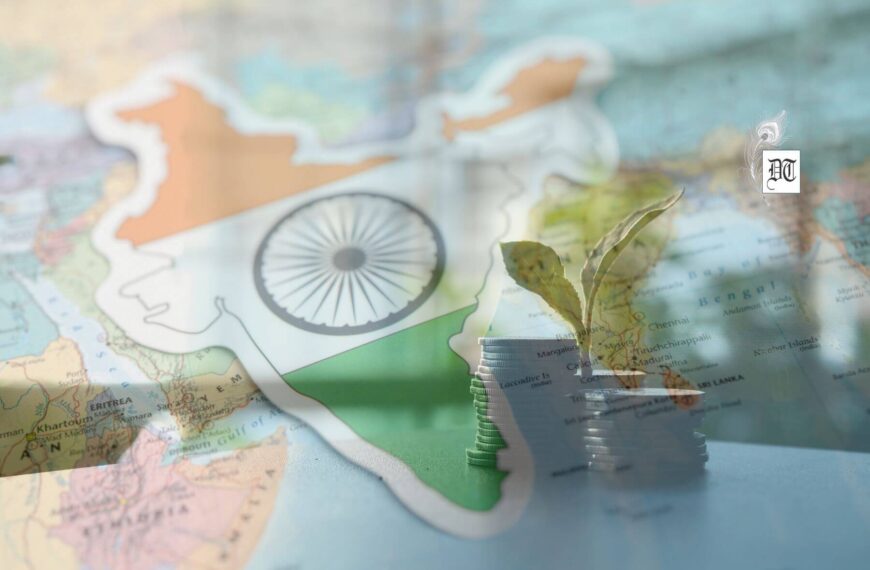The proceedings of the third All India Conference of AIKMS began today at Allahabad. Justice Kolse Patil dwelt at length on how the policies pursued by the various ruling class parties in the country have pushed agricultural sector in to a deep seated crisis that has pushed hundreds of millions of farm families in the country into a financial and social morass taking a heavy toll on them in the form of farm suicides.
After the impressive rally on April 2, the conference proceedings of the third All India Conference of All India Kisan Mazdoor Sabha (AIKMS) commenced from today at the Rajarshri Tandon Mandapam auditorium in the city. For the purpose of the conference, the hall has been rechristened as Com. Madala Narayana Swami Hall after the veteran revolutionary leader, who was one of the important leaders of the Telangana Armed Peasant uprising against the rule of the then Nizam of Hyderabad, from 1945 to 1949.
The proceedings were inaugurated with the hoisting of the AIKMS flag by Com H. S. Sandhu, all India President of AIKMS. After the hoisting of the flag the delegates and other guests gathered at the venue saluted the flag with the singing of the ‘Communist International.’ Thereafter, the AIKMS Gen. Sec. Com Sushanta Jha garlanded the martyr columns in memory of the peasant comrades, who have laid down their lives in struggles in furtherance of the revolutionary peasant movement in the country. Veteran cultural activist of ‘Arunodaya’ from Telangana, Com Rama Rao rendered a martyr’s song to pay homage to them.
The open session of the conference started at 10 am with the reception committee members being invited on to the stage to conduct its proceedings. The reception committee of the conference was constituted of respected public intellectuals of the Allahabad and included Justice Janardhan Sahai as its president, Om Dutt Singh as secretary, senior advocate Ravi Kiran Jain and Ranjana Kakkar.
Justice Sahai later invited on stage the chief guest of the conference, former Judge of the Mumbai High Court, Justice B G Kolse Patil and the representatives of the fraternal organisations, who had been invited for the conference. The fraternal delegates included Com Vyas Tiwari from IFTU, Com Jhansi (Progressive Organisation of Women), Prof. Ish Mishra (Janhastakshep), Com Rama Rao (Arunodaya), Com Raminder (Naujawan Bharat Sabha), Com Pradeep (Progressive Democratic Students Union), Richa Singh (Allahabad University Students Union president), Prof Kailash Sharma (All India Krantikari Kisan Sabha), Joginder Singh Ugrahan (President Bhartiya Kisan Union, Ekta).
One international delegate, Com. Sylvia Mallari of the Phillipines Worker’s Movement was also present in the inaugural session.
Welcoming the conference delegates and guests on the occasion Justice Janardhan Sahai expressed his happiness that the first ever all India conference of any peasant organisation in Uttar Pradesh was being held in the city of Allahabad by AIKMS. He said that the conference was important because it was being held at a time when the country is passing through a deep economic and agrarian crisis and the present Modi government at the Centre is bent upon dividing the people in the name of religion and pseudo-nationalism to cover up its failure on all fronts. Justice Sahai hoped that this conference shall lay the ground for expansion of the revolutionary peasant movement in Uttar Pradesh.
Following his address, Justice Sahai invited the chief guest Justice B G Kolse Patil to deliver his inaugural address for the conference. Justice Kolse Patil had resigned from the Mumbai High Court, in 1990, to involve himself fully into various social movements in the state of Maharashtra. He has been a veteran of many anti-displacement movements in Maharashtra and is presently active with the Pune based organization ‘Lok Shasan Andolan’ working against SEZs (special economic zones) and environmental issues.
In his hour long speech Justice Kolse Patil dwelt at length on how the policies pursued by the various ruling class parties in the country have pushed agricultural sector in to a deep seated crisis that has pushed hundreds of millions of farm families in the country into a financial and social morass taking a heavy toll on them in the form of farm suicides. Most unfortunately, there is little visible concern among the governments of the day to change the situation. The present Modi government is trying to hoodwink the people of the country by saying that they shall double the farm incomes within next five years while the policies being pursued by it are only aggravating the factors that have led to the present crisis.
Justice Patil also pointed to the silent attempts that are going on unabated to increase the hold of the multinational agribusiness on Indian agriculture. Taking a dig at the government’s argument of increasing burden of agricultural subsidies, Justice Patil informed that compared to the minimum support prices recommended by the Swaminathan Committee report, the actual prices given to the farmers by the government resulted in a loss of ten lakh crores of rupees to the farmers in a single year. Given such state of affairs what burden is the government talking of.
He also criticised the education system in the country, which hampered the development of critical and independent thinking among the people and that the ruling classes have deliberately used the education system as a tool to protect their rule over the people.
After Justice Kolse Patil’s address, the fraternal delegates presented their comradely greetings or the success of the conference. Com. Sylvia presented the international perspective of the peasant movement and gave the description of how the peasants in Indonesia and Philippines are fighting despite brutal suppression unleashed by the government. The message sent by the All Nepal Peasants Association leader Com. Bhumishwor Kandel was read out at the conference by Dr Ashish Mittal.
After the address by the fraternal delegates, the reception committee handed over floor to the central executive committee of AIKMS. The conference elected a four member presidium comprising of Com H S Sandhu, Com Rambriksh Ram, Com Natobar Shadangi and Com Dev Rao, for conducting the further proceedings of the conference.
At the request of the presidium, the ‘Central Call’ to be adopted by the conference was presented before the delegates by Com Ashish Mittal. The central themes of the call were to build struggles for – distribution of agricultural and residential land, – reduce the cost of inputs, provision of agricultural implements at cheap rates and fixing of remunerative prices for the produce, – waiving off the loans of the peasants, – struggles against forced displacement and to resist oppression unleashed on peasant movements.
The delegates shall deliberate on the ‘conference call’ tomorrow. Prof. Ravi Srivastava from Jawahar Lal Nehru University, a noted economist shall deliver his keynote address to the conference, tomorrow, at 9 am.
Pix from Net



 By
By

 By
By